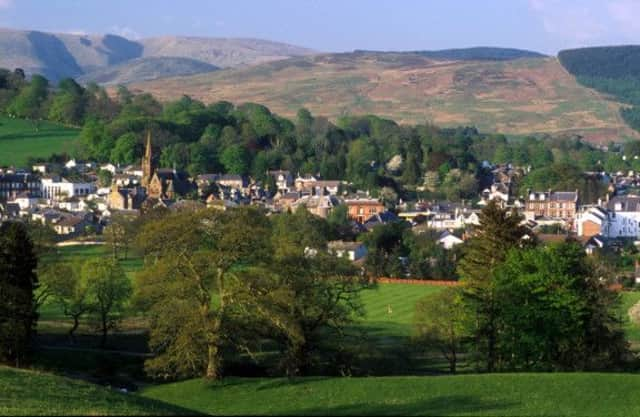Scottish indepence poll shows Borders intentions


The poll of more than 1,000 Scots in the south of Scotland showed a harder opposition to independence than in other parts of the country.
Backing for independence has consistently stood at about a third of the entire population, according to most opinion polls from the last year.
Advertisement
Hide AdAdvertisement
Hide AdThe new poll for ITV Border by ComRes of 1,004 voters showed that 59 per cent of those interviewedsaid they will vote No, compared to just 24 backing independence.
A total of 17 per cent were undecided in the poll taken in the Scottish Borders and Dumfries and Galloway council areas.
However, the poll also showed that voters in the South of Scotland described themselves as being more Scottish than British.
A total of 24 per cent said they were more Scottish than British, while just seven per cent said they felt more British than Scottish.
There were 21 per cent who said they Scottish and not British, with 12 per cent saying they were British and not Scottish.
However, 35 per cent of those polled said they felt equally Scottish and British. Just one per cent said they were unsure of their national identity.
The findings were published as a separate poll showed that two-thirds of Scots are struggling to decide if information provided in the run-up to the independence referendum is true or not.
The Law Society commissioned survey also found that only one in seven people thought they were very well informed about the issues being debated ahead of the vote on 18 September while nearly one in 10 said they were not at all informed.
Advertisement
Hide AdAdvertisement
Hide AdA total of 1,006 people across Scotland were interviewed by polling company Ipsos MORI for the research, which found 14 per cent of people regarded themselves as being very well informed about the issues being debated ahead of the referendum with 42 per cent saying they were fairly well informed.
However, 34 per cent said they were not well informed while 9 per cent claimed that they were not at all informed about the issues.
The research was carried out between 29 November and 5 December - in the immediate period after the Scottish Government launched its white paper on independence - setting out its blueprint for leaving the UK.
When asked if they found it difficult to decide whether information being provided in the debate was true or not, 34 per cent strongly agreed while 33 per cent tended to agree with this.
Meanwhile, Labour MSP Richard Baker, a director of the anti-independence Better Together campaign, said the findings in the South of Scotland would be a blow to the pro-independence Yes Scotland campaign.
Mr Baker said: “Clearly these are very poor results for the nationalists and they show that despite all the efforts
of Alex Salmond and Nicola Sturgeon opinion has not shifted.
“However, we are not complacent and know that there is a huge amount of work to do. The result will be much tighter than people think.
Advertisement
Hide AdAdvertisement
Hide Ad“The poll does show that the nationalists are failing to persuade people about independence.”
A spokesman for Yes Scotland said: “As we move closer to the referendum we will, of course, be stepping up our information campaign because we know from our own detailed research that the more people learn about independence the more likely they are to vote Yes. We will be campaigning hard in the South of Scotland as we will be in every other part of the country.
“We know we still have a lot of hard work to do to convince more people that taking our own future into our own hands makes sense for Scotland as well as the rest of the UK, but we are very much up for the challenge. Recent polls have shown that momentum is with us and we are confident that we can achieve a Yes vote on September 18.”